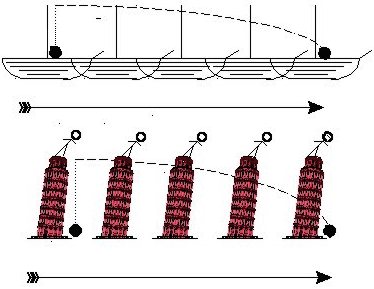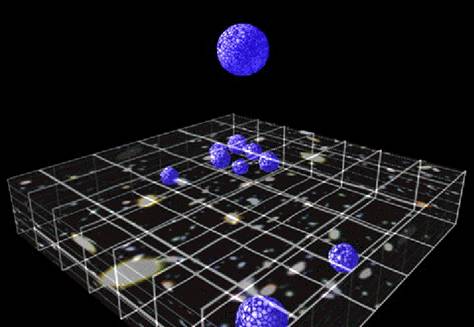
The term reference frame was coined in the 19th century, but it has a long prehistory, beginning, perhaps, with the emergence of the Copernican theory. As we will see, Nicholas of Cusa was perhaps the first to point out the necessity of having a reference frame in order to properly interpret observed motion.
In this case, the earth and the sun are merely possible points of view from which the motions of the celestial bodies may be described. While the Ptolemaic system which represent the planetary motions by combinations of circular motions - could take any point to be fixed, the choice of any particular point required some justification on other than astronomical grounds - there has to be some sensible definition and agreement on what is chosen as fixed.
Galileo demonstrated that the Copernican view does not contradict our experience of a seemingly stable earth, through a principle that, in the precise form that it takes in Newtonian mechanics, has become known as the principle of Galilean relativity mechanical experiments will have the same results in a system in uniform motion that they have in a system at rest. Therefore the experiments claimed as evidence against Copernicus - e.g., that a stone dropped from a tower falls to the base of the tower, instead of being left behind -- would happen just as they do whether the earth were moving or not, provided that the motion is sufficiently uniform.
Galileo's Argument:
If the earth is rotating sufficiently uniformly, a stone dropped from the
tower will fall straight to the base, just as a stone dropped from the mast
of a uniformly moving ship will fall to the foot of the mast. In both cases the
stone's vertical motion will be smoothly composed with its horizontal motion.
Hence a sufficiently uniform motion will be indistinguishable from rest.

Eratosthenes Map of the World - 220 BC

A coordinate system is an agreed upon reference frame in which the position and time of physical events can be placed so that all observers, independent of their particular location, can agree on the occurence of that event.
Importantly, without a coordinate system, THERE CAN BE NO UNIVERSAL EVENT.
Now pay attention to the blue ball of science ...
